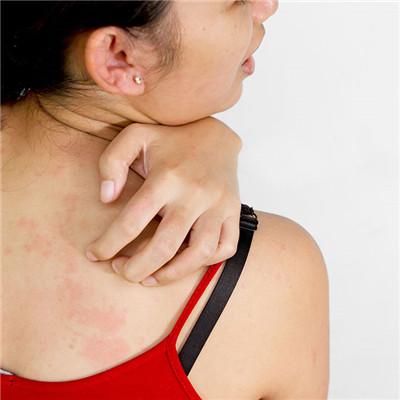Symptoms of intestinal fungal infection?
summary
Intestinal fungal infection is mainly caused by Candida albicans. Candida albicans is one of the normal intestinal flora, long-term use of broad-spectrum antibiotics or adrenocortical hormone, fungi can multiply and cause enteritis. Children under 2 years old have more diseases. Onset can be acute and slow, the frequency of stool increases, yellow thin water, foam, mucus, moldy odor, and some like tofu residue, serious pus and stool or pus and blood, can have low fever, vomiting, abdominal distension and abdominal pain, next to tell you about intestinal fungal infection symptoms?
Symptoms of intestinal fungal infection?
1. Most common, especially in children with malnutrition or severe failure. Diarrhea is mainly manifested as diarrhea, stool 10~20 times a day, water samples or tofu residue, foam and yellow green, can be accompanied by abdominal distension, low fever, and even vomiting, but abdominal pain is rare. A large number of budding yeasts and hyphae could be seen on iodine smear of fecal specimens, and most of them were Candida albicans. Children often have thrush. Patients with underlying diseases often have a history of using broad-spectrum antibiotics before onset.

2. Most of them are caused by Aspergillus fumigatus. It is often secondary to pulmonary aspergillosis. The main clinical manifestations of Aspergillus enteritis are abdominal pain and bloody stool, which can cause massive gastrointestinal bleeding. Diarrhea is often atypical and lacks the protracted process of Candida enteritis. It is easy to develop into disseminated aspergillosis after vascular invasion.

3. It is caused by ingestion of food contaminated by fungal spores, which is more common in malnourished children or patients with chronic gastrointestinal diseases. It is characterized by mucosal ulcer or perforation after vascular embolization, accompanied by gastric infection and gastric ulcer. Abdominal pain, diarrhea, hematemesis and black stool, peritonitis caused by intestinal perforation, or hematogenous dissemination caused by invasion of gastrointestinal blood vessels, the disease develops rapidly and the mortality is high.

matters needing attention
Bed rest, digestive tract isolation. Give easy to digest, high calorie, high vitamin, low fat diet. Limit milk intake to prevent abdominal distension. Avoid irritating and mucky food. Physical cooling is available. Stop using the original antibiotics. Do not use antidiarrheal. Microecological agents can be used.










